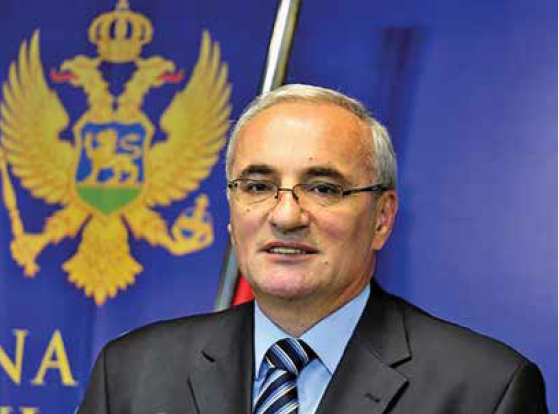This time around we have also asked the representatives of the authorities, diplomatic corps, international institutions, business associations, media and many others to express their views on the possible re-arrangement of power in the world, the European and regional political scene, the influences on Serbia’s accession to the EU, economic development, investments in culture, and as an inevitable question this year, elections which are taking place in many countries, including Serbia. We talked to H.E. TARZAN MILOŠEVIĆ, Montenegrin Ambassador to Serbia

The EU is facing Brexit and enlargement issues. What will be the outcome of the negotiations about a free trade agreement with the UK and how will the new accession methodology consolidate the EU and affect the Western Balkans?
The UK’s exit from the European Union has certainly raised a number of important questions, in particular what the future relationship between the UK and the EU will be like. Regardless of the formal legal framework for cooperation and harmonization of legislation in particular areas, the UK remains the EU’s partner on all important issues, in particular those concerning European security, Western values and common interests. I think that it is important to understand the context of foreign policy-making in the UK after Brexit and the priorities and challenges that policy makers in the UK will need to address, from the perspective of the Balkan countries. Concerning to the future trade agenda and free trade agreement with the EU, I believe that the changes will not take place immediately, as the transitional period will last until the end of December this year so that citizens and companies can adapt to this change. Great Britain and the EU should agree on a new relationship in trade and security during this period. History has shown us that it is not good to “ignore” the Balkans. Unresolved issues in the Balkans almost certainly create consequences in other European countries. It is in the common interest that the international community plays a positive and constructive role in addressing the remaining challenges. I think that, after a transitional period, the energy of the UK government will be primarily directed towards finding new models of cooperation with European partners, which, in the new EU institutions, have already validated the geopolitical role of the Commission and the return of enlargement policy to the Union’s priorities. Following the challenges the EU has faced and which must have resulted in some reforms inside the EU, changes in the enlargement policy segment, which is one of the Union’s most important policies, are also expected. As explained by the European Commission, the new methodology aims to facilitate the EU enlargement process, with more credibility for implementing fundamental reforms in the Western Balkan countries and introducing conditionality and reversibility into the process. I am convinced that all WB countries will be able to harmonize with the model of the continuation of the negotiation process so that the achievements so far are valorized in the best possible manner and that we can make the most of the proposed model. Montenegro is in the accession negotiation phase and we will remain committed to good implementation of reforms. We strive to do better and more efficiently, with the conviction that our results will be recognized and that the EU will evaluate them adequately. Taking into account the results achieved by Montenegro in the negotiation process so far, on the basis of which the country rightly retains its position as a leader in the region, the Montenegrin government will very carefully consider the implementation of the new methodology and decide whether to continue the accession negotiations under the existing or new rules. We believe that an open exchange of views and further cooperation with our European counterparts on this issue will have a positive impact on the continuation of our EU membership negotiation process. I am confident that it is in the common interest of both the European and our side to make this process as efficient and good as possible in order to ensure the necessary level of readiness needed for both Montenegro’s and the WB countries’ successful membership in the EU.
Elections at different levels will take place in five Western Balkan countries in 2020, including Serbia, plus this is an election year in the United States. What trends can we expect to see in the light of these developments in Serbia, the Western Balkans and eventually in the world?
Elections will be held in Montenegro, Serbia, Croatia, Bosnia and Herzegovina and North Macedonia, while the year 2020 is heralded in Brussels as a “pivotal year” for enlargement policy and the future of the Western Balkans. The Western Balkan countries are committed to implementing reforms on their path to the EU membership, and we are confident that this year will create a new momentum in the negotiations with the EU, and that new chapters will be closed or opened in the coming period. We believe that the EU will decide to launch negotiations with Albania and North Macedonia. It is clear that the role of the United States in the Balkans is very important and constructive, as was seen from the appointment of special envoys for the Western Balkans, Matthew Palmer and Richard Grenell. On that front, I expect that in the coming period, the United States’ role will spur progress in resolving the key issues in the region. I also believe that their engagement will be a positive boost to the processes that follow. With regard to the global framework, it is difficult to predict what will happen next. I think that it depends a lot on the results of the upcoming elections. I believe that the elections are the best test to show whether citizens support the course of their respective governments that is also linked to the road to the EU membership, but most of all to the development of countries and reforms. Elections will certainly demonstrate whether citizens have recognized the reforms and overall progress.